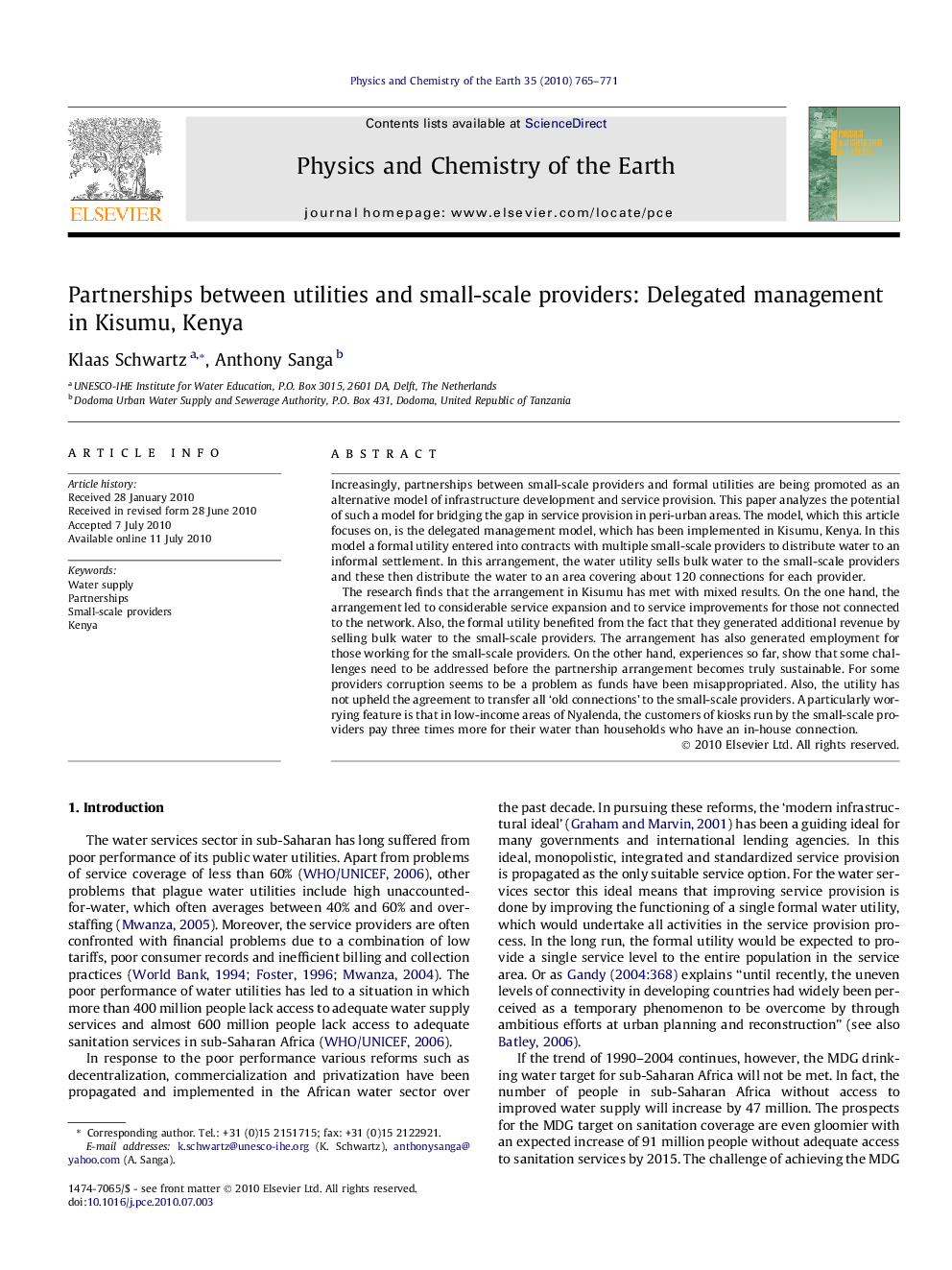| Article ID | Journal | Published Year | Pages | File Type |
|---|---|---|---|---|
| 4721781 | Physics and Chemistry of the Earth, Parts A/B/C | 2010 | 7 Pages |
Increasingly, partnerships between small-scale providers and formal utilities are being promoted as an alternative model of infrastructure development and service provision. This paper analyzes the potential of such a model for bridging the gap in service provision in peri-urban areas. The model, which this article focuses on, is the delegated management model, which has been implemented in Kisumu, Kenya. In this model a formal utility entered into contracts with multiple small-scale providers to distribute water to an informal settlement. In this arrangement, the water utility sells bulk water to the small-scale providers and these then distribute the water to an area covering about 120 connections for each provider.The research finds that the arrangement in Kisumu has met with mixed results. On the one hand, the arrangement led to considerable service expansion and to service improvements for those not connected to the network. Also, the formal utility benefited from the fact that they generated additional revenue by selling bulk water to the small-scale providers. The arrangement has also generated employment for those working for the small-scale providers. On the other hand, experiences so far, show that some challenges need to be addressed before the partnership arrangement becomes truly sustainable. For some providers corruption seems to be a problem as funds have been misappropriated. Also, the utility has not upheld the agreement to transfer all ‘old connections’ to the small-scale providers. A particularly worrying feature is that in low-income areas of Nyalenda, the customers of kiosks run by the small-scale providers pay three times more for their water than households who have an in-house connection.
